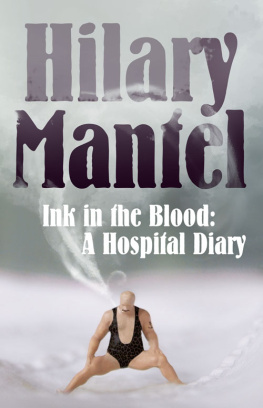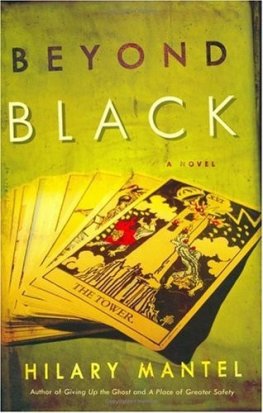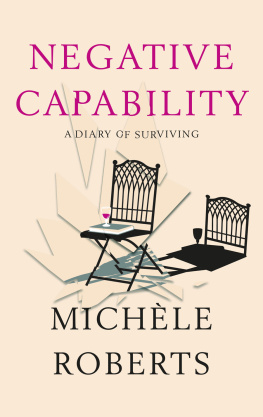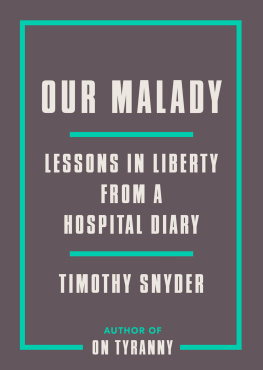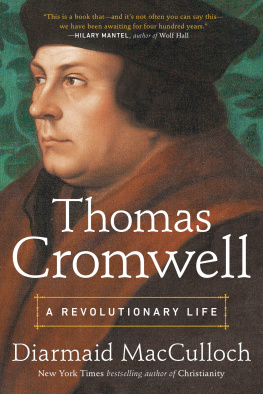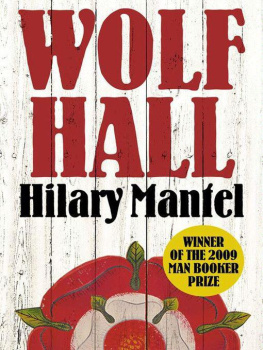Contents
Ink in the Blood
A Hospital Diary
H ILARY M ANTEL

Three or four nights after surgery when, in the words of the staff, I have mobilised I come out of the bathroom and spot a circus strongman squatting on my bed. He sees me too; from beneath his shaggy brow he rolls a liquid eye. Brown-skinned, naked except for the tattered hide of some endangered species, he is bouncing on his heels and smoking furiously without taking the cigarette from his lips: puff, bounce, puff, bounce. What rubbish, I think: actually shouting at myself, but silently. This is a non-smoking hospital. It is impossible this man would be allowed in, to behave as he does. Therefore hes not real, and if hes not real I can take his space. As I get into bed beside him, the strongman vanishes. I pick up my diary and record him: was there, isnt any more.
This happened in early July, 2010. I had surgery on the first of the month, and was scheduled to stay in hospital for about nine days. The last thing the surgeon said to me, on the afternoon of the procedure: For you, this is a big thing, but remember, to us it is routine. The operation was to relieve a stricture in my bowel, before it closed completely and created an emergency. But though we had used the latest scans in preparation, neither patient nor doctor could imagine the damage left by the endometriosis for which Id had surgery 30 years before. Organs were stuck together, pulled out of shape. It took six hours to disentangle the wreckage. When I woke up, my surgeon was standing at the end of the trolley in the recovery room, grey and shrunken as if a decade had passed. He had expected to be home for dinner. And now look!
Hospital talk is short and exclamatory. Oops! Careful! Nice and slow! Oh, dear! Did that hurt? But the night after the surgery, I felt no pain. Flighted by morphine, I thought that my bed had grown as wide as the world, and throughout the short hours of darkness I made up stories. I seemed to solve, that night, problems that had bedevilled me for years. Take just one example: the unwritten story called The Assassination of Margaret Thatcher. I had seen it all, years ago: the date and place, the gunman, the bedroom behind him, the window, the light, the angle of the shot. But my problem had always been, how did the Armalite get in the wardrobe?
Now I saw that it just grew there. It was planted by fantasy. If a whole story is a fantasy, why must logic operate within it? The word planted started another story, called Chlorophyll. By morning, I had the best part of a collection. But when I sat up and tried to write them down, my handwriting fell off the lines. I kept trying to fish it up again, untangle the loops and whorls and get them back to the right of the margin, and when I think of my efforts then, I think of them in the present tense, because pain is a present-tense business. Illness involves such busywork! Remembering to breathe. Studying how to do it. Plotting to get your feet on the floor, inching a pillow to a bearable position. First move your left foot. Then your other foot, whatever they call it... any other foot youve got. Let us say youre swaying on your feet and sweating, you think you might fall down or throw up you have to rivet your attention to the next ten seconds. After the crisis is over, time still behaves oddly. It takes a while for the hour to stretch out in its usual luxurious fashion, like unravelling wool. Until you are cool, settled and your vital signs good, time snaps and sings like an elastic band.
When I write my diaries I talk to myself with an inward voice. For the next week I am conscious that my brain is working oddly. Imagine you were creating all your experience by writing it into being, but you were forced to write with your wrong hand; you would make up for the slow awkwardness by condensing phrases, like a poet. In the same way, my life compresses into metaphor. When I sit up and see the wound in my abdomen, I am pleased to see that it has a spiral binding, like a manuscript. On the whole I would rather be an item of stationery than be me. It is as if my thoughts are happening not inside my head but outside me in the room. A film with a soundtrack is running on my right side. It keeps me busy with queries based on false premises. Is it safe if I drink this orange juice? But I blink and the orange juice isnt there. Therefore I study reality carefully, the bits of it within reach. For a while I think I have grown a new line on one of my hands, a line unknown to palmistry. I think perhaps I have a new fate. But it proves to be a medical artefact, a puckering of the skin produced by one of the tubes sewn in to my wrist. We call those lines, too. The iambic pentameter of the saline stand, the alexandrine of the blood drain, the epidurals sweet sonnet form.
Within a few days, the staff are tampering with my spiral binding when the whole wound splits open. Blood clots bubble up from inside me. Over the next hours, days, nurses speak to each other in swift acronyms, or else form sentences you might have heard in Haworth: Her lungs are filling up. But I have undentable faith in my own body. When I am told I need a blood transfusion, I plead, Lets give it 24 hours and see. I have never been accepted as a blood donor, and I dont like the idea of a debt. When the blood comes, the strangers precious blood, it leaks everywhere from the cannula on my neck, which needs to be taken out and resewn. The night sister looks meaningfully at the vampires kiss and says, Another two of those wounds would do it. Finish me off, she means. She is real but I accept her words are not. A hallucination has to be gross before I can pick it.
My internal monologue is performed by many people nurses and bank managers are to the fore. There is a breathless void inside me, and I think it needs to be filled. I should put money in it, I think. Like a cash machine in reverse, notes slotting between my ribs. Certain items are taken away the drain that takes blood from my side, a bridle that feeds me oxygen but they are never taken far enough away, they easily come back. I clamp a smile on my face and drift. I have a switch I can press for patient controlled analgesia. But the staff seem uneasy about giving up control over my pain. Some say I am pressing the button too often, some say too seldom. I want to please them so I try and make my pain to their requirements.
Illness strips you back to an authentic self, but not one you need to meet. Too much is claimed for authenticity. Painfully we learn to live in the world, and to be false. Then all our defences are knocked down in one sweep. In sickness we cant avoid knowing about our body and what it does, its animal aspect, its demands. We see things that never should be seen; our inside is outside, the bodys sewer pipes and vaults exposed to view, as if in a woodcut of our own martyrdom. The whole of life the business of moving an inch requires calculation. The suffering body must shape itself around the iron dawn routine, which exists for the very sick as well as the convalescent: the injection in the abdomen, pain relief, blood tests as needed, then the long haul out of bed, the shaking progress to the bathroom, the awesome challenge of washcloth and soap.
This is a small private hospital, clean and unfancy, set in the sprawling campus of a vast public hospital of which I have experience, and have reason to distrust and detest. I feel guilty, God knows, about all sorts of things, but not about buying myself a private room. The staff looking after me are the same people who would be working at the larger institution, but they are less rushed and so more considerate. Its usual in talking about health services to say that the system needs all sorts of reforms but the workers are wonderful. I think that the workers are as apt to fail as the system is, though the staff here are about as good as busy nurses can be. Some people, on a hospital ward or anywhere else, always do what they say theyll do, and others just dont; to them, promises are just negotiating ploys, and the time on the clock is secondary to some schedule of their own. Some can imagine being in pain, and some dont want to. A single extra minute to settle a patient comfortably can mean the difference between a neutral experience and an experience of slowly building misery. Some take the human body to be made of flesh, some of jointed metal. A polite radiographer bends my arm back over the side of a trolley so that it feels as if hes trying to break it. And I too think of my body as consisting of some substance that I can split apart from myself, and hand over to the professionals, while I take an informed interest in what they do to it. Far from being isolating, my experience is collaborative. The staff are there to reassure me, and I am there to reassure them; in this way we shield each other from an experience of darkness. One day soon after the surgery I vomit green gunk. Dont worry! I exclaim as I retch. It will be fine! Its just like The Exorcist , I say, before anyone else can.
Next page
